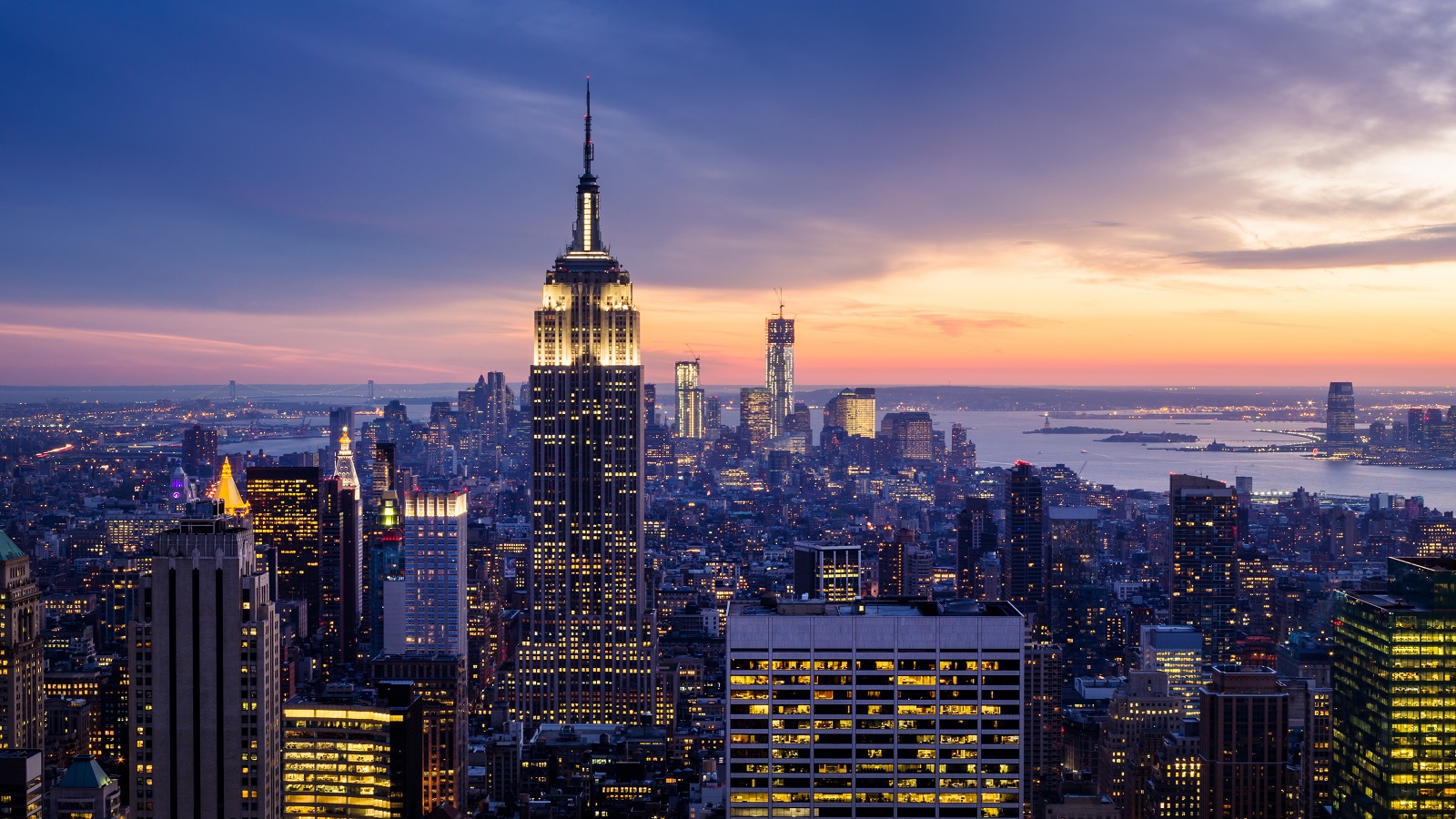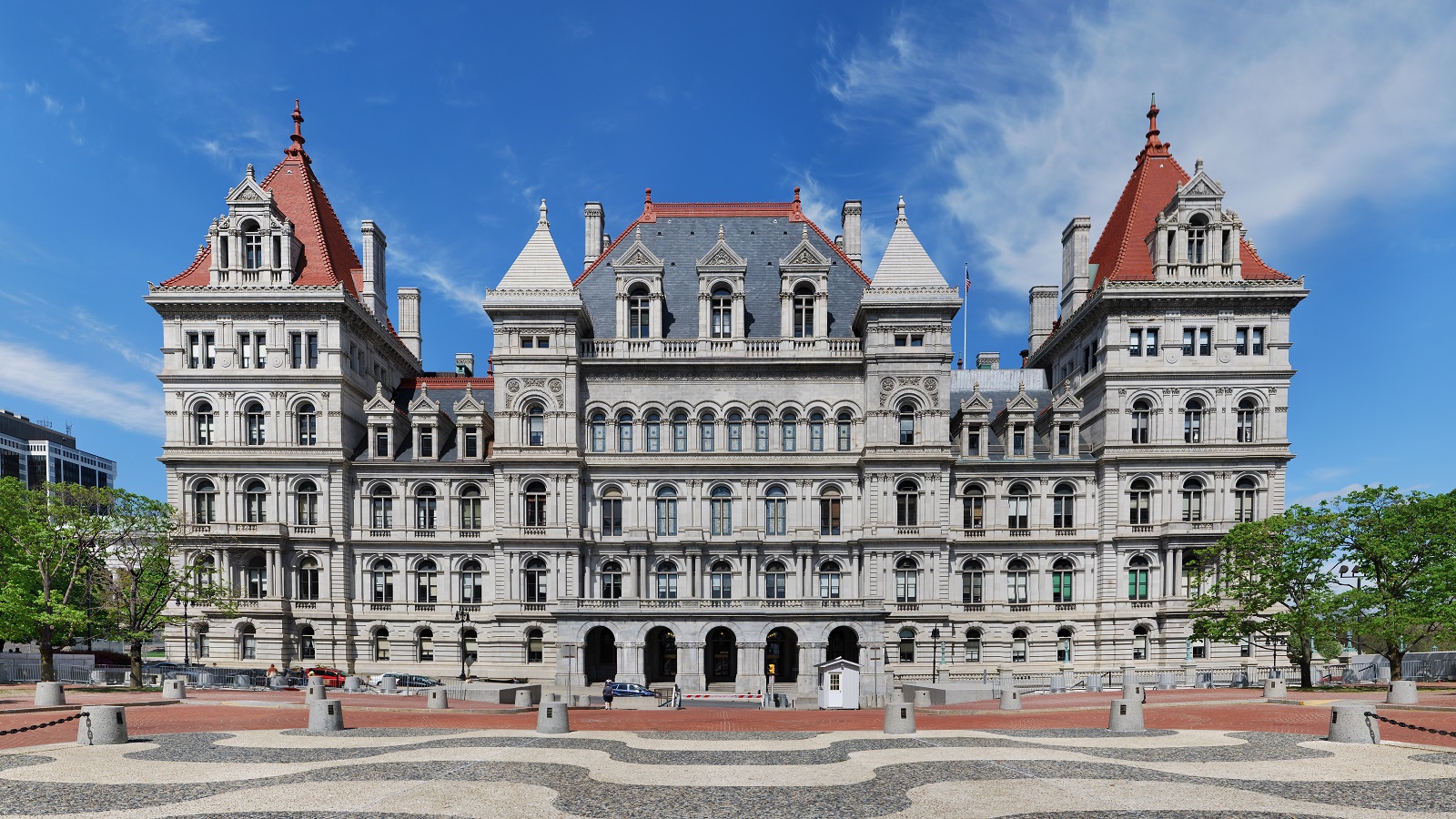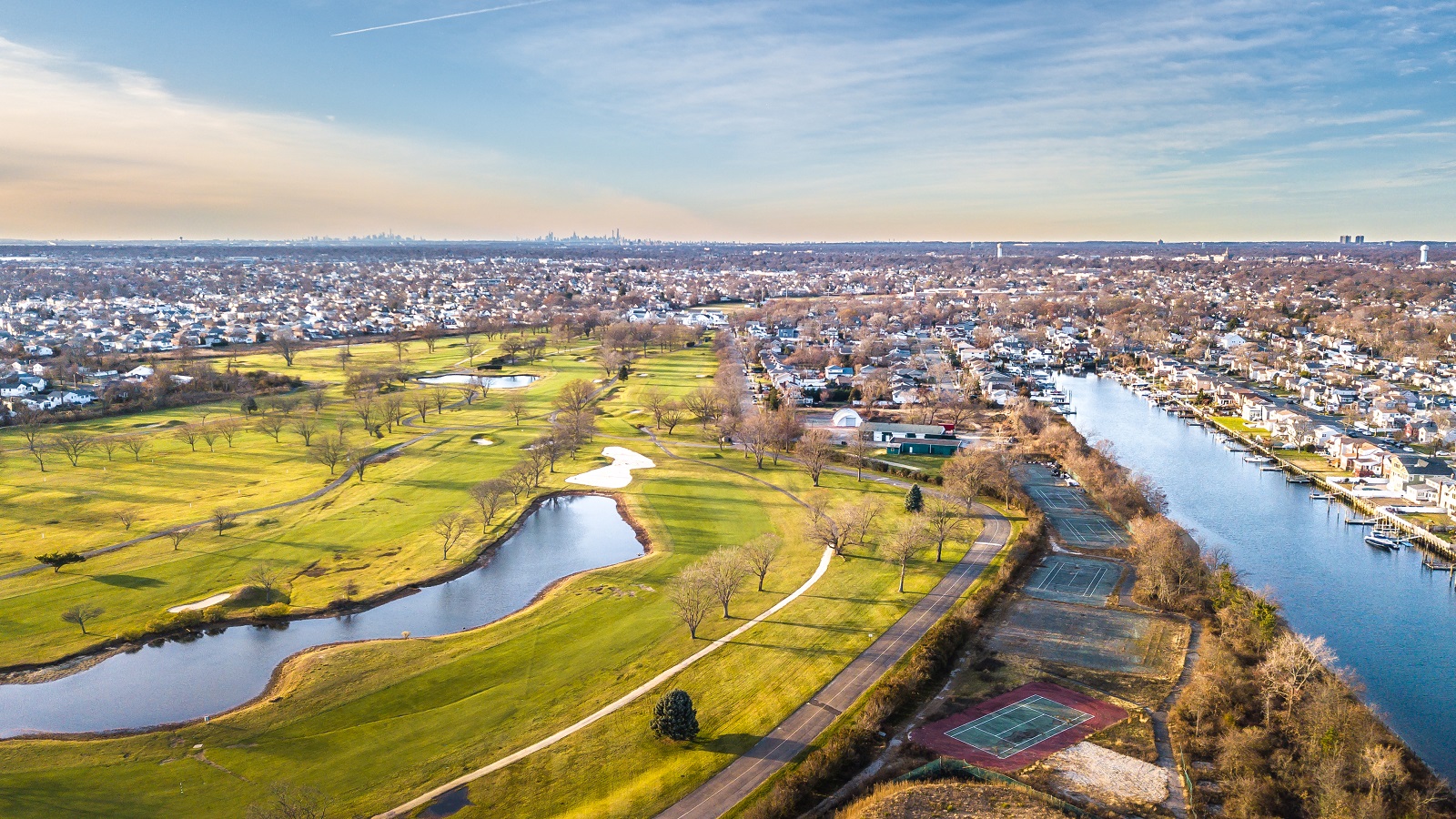Largest Cities in New York | 🍎 New York Cities by Population {data, stats, info} – zippboxx
Largest Cities in New York | 🍎 New York Cities by Population {data, stats, info}

Categories
by Rob Marchese
Visiting or moving to New York? When deciding where to visit or ultimately settle down, it helps to familiarize yourself first with the largest cities in New York.
The New York population is 20.2 million which makes it the fourth most populous state after California, Texas, and Florida. While there are more than 1,500 villages, towns, and cities in New York, you may be surprised to learn that New York state actually has very few incorporated cities! There are only 63 cities in New York State but 933 towns. Towns in New York are similar to townships in many other states and classified as municipal corporations with less autonomy than cities.
As you explore this guide to the biggest cities in New York, we’ll note the region. New York is divided into several major regions including Upstate, Downstate, Western, and Central New York. Downstate New York includes New York City (and its five boroughs) and Long Island (comprised of Nassau County and Suffolk County). Upstate New York is sometimes simply defined as all of New York north of the NYC metro area.
Here are the top 10 biggest cities in New York complete with demographics and top attractions.
New York Demographics
- Population: 20,201,249
- Area: 47,126 square miles
- Population density: 411 people/sq mi
- Median age: 39 years
- Median household income: $71,117
- Median home price: $650,000
- Educational attainment: 37.5% bachelor’s degree or higher
#1. New York City
- City population: 8,804,190
- Area: 303 square miles
- Population density: 27,012 people/sq mi
- Median age: 37 years
- Median household income: $67,046
- Median home price: $805,000
- Educational attainment: 39% bachelor’s degree or higher
- New York City crime rate: 2,030 crimes per 100,000 people (18% lower than national average)
- New York, NY map
New York City isn’t just first among cities in New York by population and area; it dwarfs all other New York cities. NYC is the most densely populated city in the U.S. and the center of the New York metro area with a population of 2.1 million. New York is one of the most populated megacities in the world.
New York is made up of five boroughs which are coextensive with counties:
- Brooklyn (Kings County): 2.74 million
- Queens (Queens County): 2.41 million
- Manhattan (New York County): 1.69 million
- The Bronx (Bronx County): 1.47 million
- Staten Island (Richmond County): 496,000


#2. Buffalo
- City population: 278,439
- Area: 40 square miles
- Population density: 6,471 people/sq mi
- Median age: 33 years
- Median household income: $39,677
- Median home price: $200,000
- Educational attainment: 29% bachelor’s degree or higher
- Buffalo crime rate: 4,236 crimes per 100,000 people (71% higher than national average)
- Buffalo, NY map
Buffalo, NY is the largest of cities in Upstate New York and it ranks second among New York cities by population. The city is found in Erie County in Western New York on Lake Erie and the head of the Niagara River and right at the border with Canada. Buffalo is part of the Buffalo-Niagara Falls metro area with a population of 1.1 million.
Buffalo is known for its rich cultural attractions and arts, Buffalo wings, and the nearby Niagara Falls. The city hosts the National Buffalo Wing Festival every year with over 865,000 attendees and the Taste of Buffalo food festival with more than 450,000 visitors each year. Famed landscape architect Frederick Law Olmstead, best known for NYC’s Central Park and Boston’s Emerald Necklace parks, was involved in planning the roads and parks of Buffalo, the first coordinated public park system in America. Olmstead described Buffalo as “the best planned city in the United States, if not the world.”
#3. Yonkers
- City population: 211,569
- Area: 18 square miles
- Population density: 11,118 people/sq mi
- Median age: 39 years
- Median household income: $69,825
- Median home price: $459,000
- Educational attainment: 35% bachelor’s degree or higher
- Yonkers crime rate: 1,267 crimes per 100,000 people (49% lower than the national average)
- Yonkers, NY map
Yonkers ranks third among major cities in New York by population, just barely beating out Rochester. Yonkers is located on the Hudson River in Westchester County and it’s part of Downstate New York and the NYC metro area.
Despite being minutes from Manhattan, Yonkers offers quiet, tree-lined neighborhoods and a great quality of life. It’s popular with young professionals, families, and seniors alike thanks to its short commute to Manhattan and the Bronx, top attractions, low crime, nightlife, and beautiful parks and outdoor space. Explore fun things to do in Yonkers like LEGOLAND Discovery Center Westchester, Empire City Casino, and Untermyer Park and Gardens with a walled Persian garden overlooking the Hudson then head to downtown Yonkers centered on the bustling Getty Square with major shopping like the Cross Country Shopping Center and a public transit hub.
View this post on Instagram
A post shared by Yonkers Downtown BID (@yonkersdowntown)
#4. Rochester
- City population: 211,328
- Area: 36 square miles
- Population density: 5,770 people/sq mi
- Median age: 32 years
- Median household income: $37,395
- Median home price: $154,000
- Educational attainment: 27% bachelor’s degree or higher
- Rochester crime rate: 4,219 crimes per 100,000 people (70% higher than national average)
- Rochester, NY map
Rochester recently fell one spot among cities in New York by population with about 500 people less than Yonkers. Rochester is located in Monroe County of Western New York on Lake Ontario and it’s the second largest among Upstate New York cities. The Rochester metro area has a population of 1 million.
Rochester was one of the first boomtowns in America. Some of the most iconic companies in American history were started in Rochester including Xerox, Bausch & Lomb, French’s, and Eastman Kodak. It’s played a big role in the women’s rights and abolitionist movements in the U.S. and today has an economy focused on education and technology. Rochester is known for its music scene, great livability, the Strong National Museum of Play, major festivals like the Rochester International Jazz Festival, and the prestigious Eastman School of Music.
#5. Syracuse
- City population: 148,620
- Area: 25 square miles
- Population density: 5,689 people/sq mi
- Median age: 32 years
- Median household income: $38,893
- Median home price: $120,000
- Educational attainment: 29% bachelor’s degree or higher
- Syracuse crime rate: 3,927 crimes per 100,000 people (59% higher than national average)
- Syracuse, NY map
Syracuse ranks 5th on this list of cities in New York and the last of New York cities with at least 100,000 residents. It’s also the third largest of cities in Upstate New York. Located in Onondaga County, it’s the major city of Central New York with a metro population of 662,000. Halfway between NYC and Toronto and 90 to 150 miles from Albany, Buffalo, and Rochester, Syracuse has been an important crossroads for centuries.
Syracuse is known for its higher education with Syracuse University and the State University of New York (SUNY) Upstate Medical University, one of the country’s oldest medical schools.
Syracuse is one of the cheapest cities in New York for buying a home with a median home price of just $120,000. Syracuse offers an unbelievable quality of life considering its affordability. The city is the region’s hub for entertainment and culture with museums, performing art spaces, and a major zoo. The city is home to the popular Rosamond Gifford Zoo and close to gorgeous Onondaga County parks, lakes, and forests.
View this post on Instagram
A post shared by Visit Syracuse (@visitsyracuse)
#6. Albany
- City population: 99,224
- Area: 21 square miles
- Population density: 4,525 people/sq mi
- Median age: 31 years
- Median household income: $48,512
- Median home price: $207,500
- Educational attainment: 43% bachelor’s degree or higher
- Albany crime rate: 3,759 crimes per 100,000 people (52% higher than national average)
- Albany, NY map
Albany is the New York capital but it’s just sixth among big cities in New York by population and the fourth largest Upstate New York city. Albany is located on the Hudson River 135 miles north of New York City and it’s the core of New York’s Capital District which has a population of 1.1 million.
Albany, NY is known for its cultural attractions, education, and architecture. The iconic Empire State Plaza complex dominates the cityscape and it’s home to the state’s tallest building outside NYC. The New York State Capitol is one of Albany’s most recognizable and striking buildings. There are nearly one dozen museums in Albany including the New York State Museum.


#7. New Rochelle
- City population: 79,726
- Area: 10 square miles
- Population density: 7,445 people/sq mi
- Median age: 40 years
- Median household income: $81,735
- Median home price: $594,000
- Educational attainment: 44% bachelor’s degree or higher
- New Rochelle crime rate: 1,089 crimes per 100,000 people (56% lower than national average)
- New Rochelle, NY map
This small city in Westchester County is part of Downstate New York. Sometimes called New Rock or New Rock City, New Rochelle is one of the oldest cities in America’s Northeast. New Rochelle ranks 7th among the largest cities in New York State despite a population of less than 80,000. New Rochelle is one of the richest areas in New York. The city has a median household income above the state and NYC median with a median home price approaching $600,000, second only to New York City among the largest cities in New York.
New Rochelle boasts 231 acres of public parks, a city marina, and 9 miles of shoreline. Paradise for outdoor enthusiasts and beach lovers, Hudson Park & Beach is one of the city’s top attractions with a sandy shoreline and playground. The stunning Glen Island Park is a 105-acre waterfront park on Glen Island on the Long Island Sound offering secluded sunset views, dramatic NYC skyline views, a small beach with gentle waves, and playgrounds.
View this post on Instagram
A post shared by Westchester Drone Ops LLC (@westchesterdroneops)
#8. Mount Vernon
- City population: 67,292
- Area: 4 square miles
- Population density: 15,393 people/sq mi
- Median age: 41 years
- Median household income: $59,291
- Median home price: $321,000
- Educational attainment: 31% bachelor’s degree or higher
- Mount Vernon crime rate: 1,809 crimes per 100,000 people (27% lower than national average)
- Mount Vernon, NY map
Mount Vernon is one of the most populated cities in New York in the NYC metro area. Part of Downstate New York, Mount Vernon is an inner suburb of New York City and bordered by the Bronx to the south. Mount Vernon and Yonkers voted against joining the City of Greater New York in 1894 while Staten Island, Queens, and Brooklyn voted to join. This densely populated city in New York, second only to NYC, has a residential north side and dense urban area to the south.
Mount Vernon was home to rappers Sean Combs (Puff Daddy) and DMX as well as TV personality Dick Clark and actor Denzel Washington.
#9. Schenectady
- City population: 66,135
- Area: 11 square miles
- Population density: 6,054 people/sq mi
- Median age: 37 years
- Median household income: $47,773
- Median home price: $220,000
- Educational attainment: 22% bachelor’s degree or higher
- Schenectady crime rate: 3,508 crimes per 100,000 people (42% higher than national average)
- Schenectady, NY map
Schenectady is the county seat of Schenectady County and its name comes from a Mohawk word that means “beyond the pines.” The city is in eastern New York where the Hudson and Mohawk rivers meet just 15 miles outside Albany. Schenectady is 9th on this list of cities in New York but ranks fifth by population in Upstate New York.
Schenectady is the birthplace of Thomas Edison’s General Electric Company and where Westinghouse invented air brakes and the rotary engine. In its early history as a manufacturing center, it was called “the City that Lights and Hauls the World.” It’s home to several top attractions like the VIA Aquarium, Maple Ski Ridge for winter sports, and the River Casiono & Resort Schenectady.
#10. Utica
- City population: 65,283
- Area: 17 square miles
- Population density: 3,587 people/sq mi
- Median age: 32 years
- Median household income: $42,624
- Median home price: $150,000
- Educational attainment: 20% bachelor’s degree or higher
- Utica crime rate: 3,944 crimes per 100,000 people (59% higher than national average)
- Utica, NY map
Utica rounds out the list of 10 biggest cities in New York. Located in Oneida County and the Mohawk Valley, it’s the 6th largest of cities in Upstate New York. Utica is 240 miles northwest of NYC and 95 miles northwest of Albany.
Known for Utica tomato pies and Utica riggies (an Italian-American pasta dish created in the area), the small city is also home to the century-old Utica Zoo and a diverse community of immigrants from around the world.
Towns in New York
There are 833 New York towns ranging in population from 27 to almost 800,000! In fact, there are five towns in New York larger than any city except NYC and most large towns are on Long Island. Here’s a quick list of the top 10 largest towns in New York State by population.
- Hempstead, Nassau County: 793,409
- Brookhaven, Suffolk County: 485,773
- Islip, Suffolk County: 339,938
- Oyster Bay, Nassau County: 301,332
- North Hempstead, Nassau County: 237,639
- Babylon, Suffolk County: 218,223
- Huntington, Suffolk County: 204,127
- Ramapo, Rockland County: 148,919
- Amherst, Erie County: 129,595
- Smithtown, Suffolk County: 116,296


New York Cities List
*
Largest Cities in New York Map
FAQ
How many cities are in New York?
There are only 63 cities in New York. The smallest New York city is Sherrill with a population of 3,000. Of all cities in New York, just five have a population of more than 100,000.
What are the biggest cities in New York?
The five big cities in New York are Syracuse (pop. 148,600), Rochester (211,300), Yonkers (211,600), Buffalo (278,400), and New York City (8.8 million).
What are the richest zip codes in New York?
One-third of the wealthiest zip codes in New York State are in Manhattan, but the richest zip codes are in the Hamptons on Long Island. Here are the richest New York zip codes:
- Sagaponack (11962) in Southampton, Long Island with a median home price of $5.37 million
- Water Mill (11976) in Southampton, Long Island with a median home price of $3.68 million
- Amagansett (11930) in East Hampton, Long Island with a $3.12 million median home price
- Bridgehampton (11932) in the Hamptons with a median home price of $3.16 million
- New York (10013) with a $2.76 million median home price includes the SoHo neighborhood and Broadway
What is the most populous city in New York?
New York City ranks first among the most populous cities in New York with a population of 8.8 million. Excluding NYC, the largest city is Buffalo with a population of 278,000.
What is the population of New York State?
The New York population is 20.20 million according to the 2020 census, up from 19.37 million in 2010.
Which of New York’s Biggest Cities Is Right for You?
Does one of these beautiful and exciting cities in New York sound perfect for you? If you’re ready to move to NY and you have settled on the right city or town to call home, Zippboxx is here to help make moving day a breeze. Give us a call for a free, personalized moving estimate and the 5-star experience you deserve.

Rob Marchese
Rob Marchese is one of the founders of Zippboxx Moving and Storage. Since the start of the company it’s been Rob’s mission to change the way the moving industry is perceived. The number one goal is to make the moving and storage process as stress free as possible for each and every customer. “The way we do this is by honesty, transparency, and providing a high quality of service.”
Rob Marchese is one of the founders of Zippboxx Moving and Storage. Since the start of the company it’s been Rob’s mission to change the way the moving industry is perceived. The number one goal is to make the moving and storage process as stress free as possible for each and every customer. “The way we do this is by honesty, transparency, and providing a high quality of service.”















![Toni Kroos là ai? [ sự thật về tiểu sử đầy đủ Toni Kroos ]](https://evbn.org/wp-content/uploads/New-Project-6635-1671934592.jpg)


